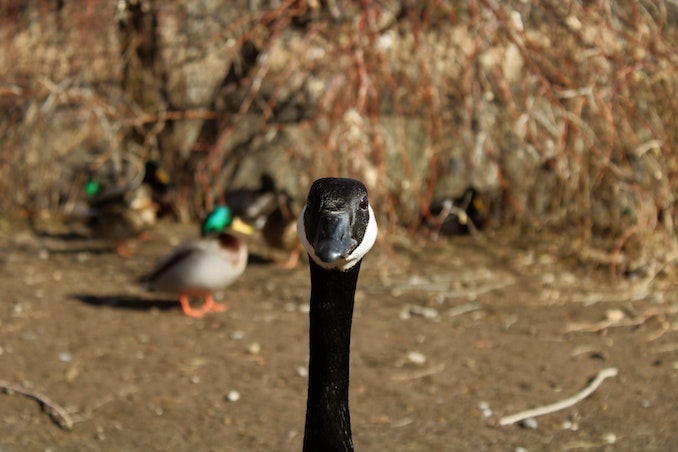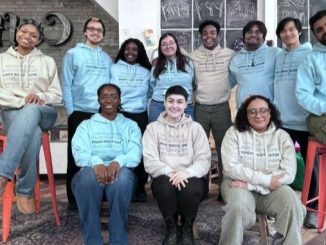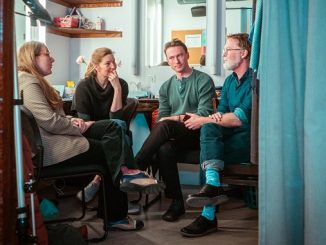Ducks Unlimited Canada connects people to a healthier world through wetland restoration and conservation. We spoke with Lynette Mader, Ducks Unlimited Canada’s manager of provincial operations in Ontario, to find out more about the organization.

Describe your charity/non-profit in a few sentences.
Ducks Unlimited Canada connects people to a healthier world through wetland restoration and conservation. We use expert science and strategic partnerships to conserve wetlands across Canada. These are critical areas that provide habitat for waterfowl and other wildlife, including endangered turtles. Wetlands also provide clean water and help reduce the impacts of floods, droughts and climate change. Currently, we have more than one million acres under our care in Ontario.
What problem does it aim to solve?
Ducks Unlimited Canada’s work is focused on wetlands—one of the world’s most threatened ecosystems because wetlands are undervalued. Today, wetlands are disappearing three times faster than forests. We are committed to protecting these critical ecosystems to ensure a healthy future for Canada. The wetlands we save aren’t just for ducks, they’re for all of us. Since 1974, we have completed more than 5,000 on-the-ground projects here in Ontario.
When did you start/join it?
I joined the Ducks Unlimited Canada provincial leadership team in 2002 as a provincial marketing manager for Ontario. After a few years, I made a lateral move to be the head of our provincial land stewardship program leading a team of field staff, and then another lateral move to be the first head of our Ontario Conservation Pro unit – a program where we outsource our expertise on a fee for service basis to raise money to reinvest in wetland conservation. In 2014 I was honoured to be the first woman in Ducks Unlimited Canada to land a provincial manager of operations position.
What made you want to get involved?
Honestly? I needed the job. Back in 2002, my husband had to retire due to a chronic illness. We were only in our early 30s and I knew I needed a better job. When I saw the job ad, I thought “this would be an awesome place to work,” and so I threw everything I had into the interview. It was a big step up for me but my farming background really helped me to land the position. I was right: it was and still is an awesome job!
What was the situation like when you started?
Land stewardship was just gaining traction across southern Ontario. There was a time when nesting habitat like tree cavities and grasslands was a limiting factor for duck survival (and other wildlife) because so much natural cover had been lost to all different types of land development. Also, it was hard to find wetland projects: it took a lot of staff time to search out potential projects and landowners. There wasn’t a lot of gender diversity on the staff: I was one of two women managers in Ontario and there was only one woman on a team of about 16 field staff.
How has it changed since?
Over the years we’ve seen tremendous growth in understanding the value of wetland habitats and genuine interest from landowners in having natural areas restored on their properties. Fast forward 20 years and we can’t keep up with the demand for wetland restoration projects with private landowners. We also have much more diversity on the team. That’s a good news story. The bad news is that it’s impossible to recover all of the wetland habitats that’s been lost. Parts of southern Ontario have very little natural cover and these areas are not climate resilient: they’re highly susceptible to extreme heat, water quality issues, flooding and loss of wildlife.

What more needs to be done?
Despite their incredible environmental and economic value, wetlands continue to be degraded and converted for other land uses—particularly in southern Ontario. As they disappear, so do the many benefits wetlands provide—and those include capturing phosphorus and mitigating extreme weather events. We must invest the effort to understand how much wetland habitat we need to re-establish to restore resiliency to the landscape.
Ducks Unlimited Canada is investing resources into working with municipalities and local conservation partners to develop natural infrastructure plans. These plans would identify opportunities to reconnect and enhance natural systems with wetland and upland restoration. The idea is to do this in advance of growth so that we’re building around these systems instead of through or over top of them. This is the path to a healthier Ontario: an Ontario with communities that have natural spaces where people can recreate and reconnect with nature. Over time, people who live in urban centres have become accustomed to paved surfaces and one tree planted on the boulevard in front of each house. They either drive far away to enjoy nature or worse, don’t have or take the opportunity to spend time in natural spaces. This isn’t good for the environment or for human health.
We are working with rural landowners, urban developers, business associations, conservation partners and governments at all levels to find solutions—acre by acre—that balance the needs of the environment and the economy.
How can our readers help?
There are many ways people can get involved. You can make a donation. You can volunteer your time and talent on a local committee that raises funds and awareness for the wetland conservation cause.
You can also lend your voice, advocating for effective legislation that supports wetland conservation. Understand how your community is growing and get involved with your local government to advocate for healthy growth. But perhaps the easiest way to help is to simply get outside and learn to love a natural space of your own. When you forge a relationship with a natural place, you start to care about its future. As conservationist Edward Abbey once said, “It is not enough to fight for the land; it is even more important to enjoy it.”
Do you have any events coming up?
Since the COVID-19 pandemic, Ducks Unlimited Canada is beginning to safely restart our in-person fundraisers across the country, including many in Ontario. Visit our website for a listing of upcoming events.
Where can we follow you?
You can find information on our website and you can follow us on Instagram, Twitter, and Facebook. You can also find us on LinkedIn and YouTube.
PAY IT FORWARD: What is an awesome local charity that you love?
As I mentioned, my husband has a chronic illness called Cystic Fibrosis (CF): a genetic condition that affects the lungs and digestive system for which the median age of survival is the mid-50s and there is no cure. He’s 58 and is pretty much a medical miracle. Public and corporate philanthropy has greatly improved the quality of life for people with CF. I’m also personally passionate about improving the long-term care experience for seniors. I volunteer in long-term care and am also a family caregiver, so I know firsthand just how vulnerable our seniors are.




